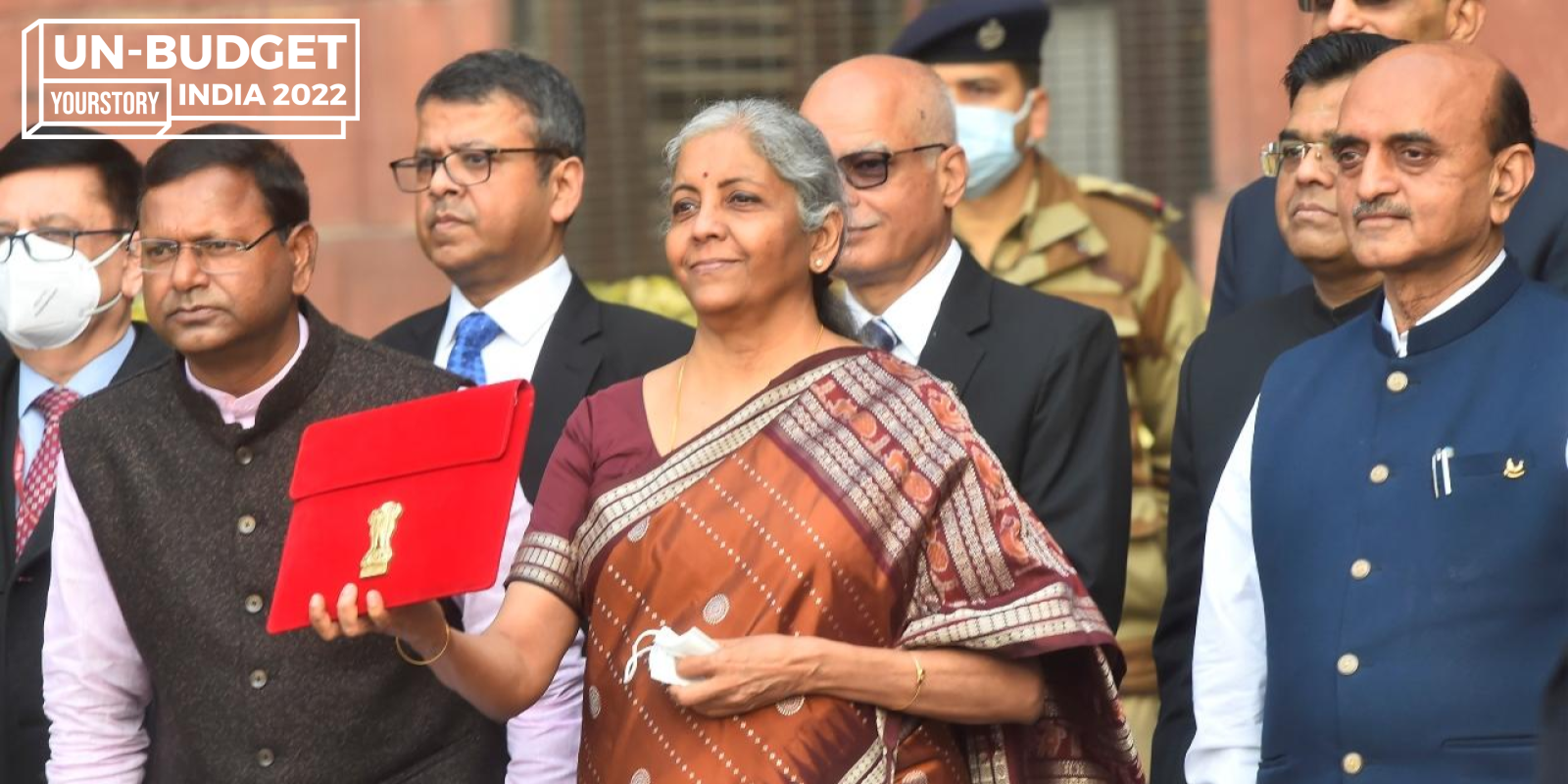GST collections touched a record of Rs 1.40 lakh crore in January on rapid economic recovery, Finance Minister Nirmala Sitharaman said on Tuesday in her budget speech. The minister said there had been remarkable progress in the goods and services tax (GST) regime, but a few challenges remained.
"Gross GST collection in January at record Rs 1,40,986 crores; this has been possible due to rapid economic recovery," she said while presenting the budget in the Lok Sabha.
January is the seventh straight month when the GST collection has crossed the Rs 1 lakh crore mark. Besides this, the fourth time the GST has crossed the mark of Rs 1. 30 lakh crore. The second highest monthly GST collection was in April 2021 at Rs 1,39,708 crore while in December it was more than Rs 1.29 lakh crore.
“This is followed by another fact that the revenues for January month are 15 percent higher when compared with the GST revenues in the same month during last year. And 25 percent more revenue than the January of 2020,” said Gaurav Jalan, Founder of Packman Packaging, a Noida-based packaging company.

Image Courtesy: PTI
The record jump in GST collection will definitely help improve tax buoyancy and decrease the fiscal deficit. GST collection is a good indicator of economic growth, but it is critical that refunds that are due are tracked properly too.
“But, as stated above, it will surely play a crucial role specifically keeping in mind that our economy needs a quick boost after COVID. However, one still needs to simplify GST; only then will actual benefits will be more visible,” Gaurav said.
Here are some more post-budget reactions from experts on the GST collection record across sectors.
Sahil Bansal, Co-founder, Chandigarh-based fitness brand
There have been several tax benefits announced for startups and companies. The burden of compliance will go down and ease of operations will go up as the policies around CGST and IGST improve. One such welcoming change was the introduction of excess cash transfers between multiple GST accounts of the same company. The upward trend of GST collections indicates the trajectory of double-digit growth for the country.
Harleen Gulati, Founder, Delhi-based tea brand Totally Infuzd
The increase in the GST collection by the government will help them in investing further into different sectors. This might lead to a rise in investments towards the food and distribution services, which will, in turn, help the tea industry.
Sujeet Kumar Mishra, Co-founder & CEO, Chandigarh-based online gifting platform
Despite the unanticipated third wave and partial lockdowns, the Indian economy has recorded its highest gross GST in January 2022, which is, of course, a great start to the year. It indicates that the economy has developed resilience and the capacity to sail through unexpected crises. Companies and brands are implementing new strategies to reintroduce and sustain growth, for which government support is critical.

Certain sectors, which are no longer considered a luxury but rather a necessity for the masses, do require some tax relief. For instance, with annual revenue of approximately $7.60 billion in 2020, the bakery industry has enormous potential for growth and innovation, and imposing a high GST is not appropriate for such sectors. Strong demand for cakes from Tier II and Tier III markets is bolstering this industry, and 18 percent GST on it increases the cost by more than 10 percent, making it a bit expensive for people.
Although it is encouraging to see that more innovative startups are contributing to the Indian economy, the pandemic that ravaged the country for three consecutive years took a toll on new brands. While startup tax incentives have been increased from three to four years after incorporation, the conditions remain the same. It would have been beneficial if the tax rebate had been expanded from Rs 25 crore to Rs 50 crore turnover.
Rajat Khurana, Managing Director, Japanese sportswear brand ASICS India and South Asia
We believe, with no change in tax slabs announced in the Budget 2022-23, consumer behaviour and purchase intent will stay unaffected in retail. It can trigger growth in some sectors significantly. Another possible area to spur demand is GST rates of some consumer goods and services. While there was no particular mention of the sports sector, it has emerged that the budget for the sports sector has been increased by over Rs 300 crore. It comes as a big boost for India's athletes - who will prove their mettle in the Asian Games as well as the Commonwealth Games this year. We were looking forward to some reforms in the retail sector. Nevertheless, we are geared up for an exciting 2022-23.
Goldy Nagdev, Managing Director, incense products brand
A record GST collection of Rs 1.4 lakh crore in January 2022 makes it worthwhile to look at the inception of GST. The introduction of GST in 2017 was a bold change in the taxation regime, given the size and scale of India as a country and an economy.
Initially, when it was implemented in 2017, there were some problems in terms of understanding the process of compliance (filing) and different rates. But, once businesses understood it properly, they started realising its benefits.
With GST, we now have a uniform and very transparent taxation system across the country. In terms of benefits, first of all, now credits and claims are transparent and visible on the portal.
The record collection of Rs 1.4 lakh crore establishes that GST is the ideal tax regime for the country.
Archit Gupta, Founder & CEO, Bengaluru-based online tax service provider
Union Budget 2022 saw a few key GST updates in the Central Goods and Services Tax (CGST) Act, especially surrounding the cancellation of GST registration and tighter input tax credit claims.

Return filing too has become more rigid with taxpayers disallowed from filing their returns if there are pending returns for previous tax periods.
The GST updates this budget are an indication of tighter GST laws to come. Taxpayers cannot default in filing their returns or inaccurately claim input tax credit anymore. Even small discrepancies could result in huge penalties or GSTIN cancellations.
Deepak Gupta, COO, Delhi-based men’s grooming startup
The Finance Minister acknowledging the role of startups as key drivers of the Indian economy going forward is very heartening. It underlines the importance of emerging businesses in nation development. The one-year extension in the startup tax incentive scheme is most welcome and needed. I would have loved to see better, friendlier tax structures for ESOPs, which will encourage more employee ownership in early stage startups, attract a wider talent pool, and further boost the startup ecosystem in India. Measures like these, which encourage more and more startups to flourish, will further bolster GST contributions. .
Edited by Teja Lele Desai

